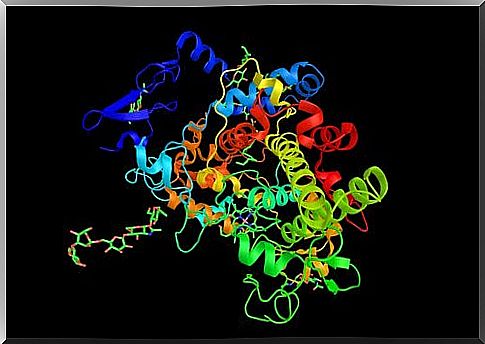Ibuprofen – What Is Worth Knowing About It?

Widely used ibuprofen is a popular pain reliever. However, it should be used with caution. Find out more about this drug.
Ibuprofen belongs to the group of non-steroidal anti-inflammatory drugs. It is one of the first aid we reach for pain, inflammation and fever.
It is estimated that half a million of the population suffer from headaches, and 30 million people suffer from lower back pain.
The rest of the people suffer from pain from cancer, heart disease, and other conditions. The main treatment for reducing pain from most of these problems is ibuprofen.
What is ibuprofen used for?
Ibuprofen comes in the form of tablets, capsules or in the form of a syrup. In all these cases, it is an anti-inflammatory, anesthetic and fever-reducing agent.
Its fever-reducing properties become active one hour after taking it and may last from 2 to 4 hours. However, treatment for an anti-inflammatory condition can take up to a week.
Main uses of ibuprofen:
- Pain relief in inflammatory situations, e.g. headache, migraine, earache, menstrual cramps, sore throat and muscle pain.
- Fever symptoms.
- Diseases such as juvenile rheumatoid arthritis and arthrosis (joint disease).
- Treatments for soft tissue wounds such as stretched muscles and strains.
How does ibuprofen work?

Structurally, ibuprofen is derived from propionic acid. It is a racemic compound (two compounds mirroring the other). Their activity drops almost entirely to the isometric relationship S.
Pharmacokinetics: What happens to ibuprofen in the body?
Ibuprofen is a drug that is not very soluble in water. However, it is often used in the form of arginate salts or lysine to improve its solubility and pharmacokinetics. As a result, the following features are formed:
- Absorption: The most common ways of taking are oral and parenteral. Oral administration is quick and effective.
- Breakdown : Ibuprofen binds effectively with plasma proteins (90-99%). It is able to spread throughout the tissues.
- Metabolism: Most metabolic processes take place in the liver. This happens through hydroxylation and carboxylation, which produce various inactive metabolites.
- Elimination: 90% of ibuprofen is excreted in the urine with only a small fraction of the faeces. This happens within 24 hours of taking the drug.
Dosage
The dosage depends on the pharmaceutical form of each patient. Doctors recommend a detailed dose adjustment for each patient individually.
However, the standard doses are as follows:
- In adults, the dosage should be 400-600 mg every 6-8 hours, but not to exceed 2.4 mg per day.
- In children from 3 months to 11 years of age, the dose should be 20-30 mg per day divided into 3 or 4 servings.
- The efficacy and safety of dosing in infants less than 3 months of age has not been established.

Doctors recommend taking the drug orally in adults only, at a dose not exceeding 600 mg, every 6-8 hours.
If possible, the next dose should not be skipped. However, you must remember to take the drug with caution, as overdosing can lead to problems with the kidneys or liver, among other things.
Contraindications and precautions when using Ibuprofen
Precautions that must be taken into account when taking ibuprofen:
- Hypersensitivity to ibuprofen. There are cases of ibuprofen crossing with NSAIDs (non-steroidal anti-inflammatory drugs) in case of aspirin allergy. These reactions are especially common in patients with asthma.
- Peptic ulcer, intestinal inflammatory disease, or any process that increases the risk of gastrointestinal bleeding. Due to the inhibition of prostaglandin synthesis, ibuprofen may increase the risk of haemorrhage and gastrointestinal perforation. Therefore, doctors recommend taking ibuprofen and any other NSAID with food to reduce stomach pain.
- Changes in clotting. Ibuprofen has some anticoagulant effects which may increase bleeding time.
- Weak kidneys. While your urine eliminates ibuprofen, it can accumulate and become toxic. It can also reduce blood flow through the kidneys.
- Uncontrolled hypertension and heart disease.
- Pregnancy. Women should avoid taking ibuprofen during the last trimester of pregnancy. They should also avoid taking the drug for a long time during the first trimester of pregnancy.
Interactions
There are many medications that can affect the way ibuprofen and NSAIDs work. For this reason, they may reduce their effectiveness and even cause the possibility of undesirable effects.
Among these effects, the following stand out:
- NSAIDs. Ibuprofen may reduce the anticoagulant effects of aspirin when drugs are taken together.
- Alcohol. There is also a risk of a toxic effect as alcohol and ibuprofen are metabolized in the liver.
- Antihypertensive drugs. It is possible to reduce antihypertensive drugs. In addition, in patients with impaired renal function, this deterioration may be accelerated (especially in dehydrated or elderly patients).
- Oral anticoagulants, heparin. There is a risk of an increased anticoagulant effect with a risk of bleeding. Therefore, doctors recommend that you periodically test your coagulation markers.
- Diabetes medications . There is a possibility of increased hypoglycaemic effects which reduce renal excretion.
- Paracetamol. Simultaneous and prolonged use of paracetamol and NSAIDs may pose a risk of harmful effects due to abnormal kidney function.
Side effects of taking ibuprofen
Side effects are mainly caused by the action of NSAIDs, inhibition of cyclooxygenase and (COX-1). Overall, they often occur with doses above 3.2 mg per day.
- Gastrointestinal effects: possible indigestion, diarrhea, nausea, abdominal pain, and gastrointestinal bleeding.
- Dermatological effects: hypersensitivity appears, manifested as eruptions, hives or erythema. However, these reactions normally occur in patients who are hypersensitive to aspirin and other NSAIDs.
- Central nervous system: headache, dizziness, lethargy, and circulatory problems.
- Haematological effects: possible prolongation of bleeding.
- Cardiovascular consequences: hypertension and heart problems.
- Kidney dysfunction: increase in urea nitrogen and problems with kidney function.









